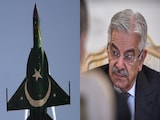A majority of the world's leading economists believe the global economy will either strengthen or remain stable in 2024, according to the World Economic Forum (WEF). The latest edition of the Chief Economists Outlook presents a cautiously optimistic view of the global economy but also highlights significant geopolitical risks.
The report is based on policy development research and surveys with leading economists from both the public and private sectors. It aims to summarise the current economic environment and identify priorities for policymakers and business leaders. The latest survey was conducted in April 2024.
According to the report, over 80 per cent of chief economists surveyed expect the global economy to either strengthen or remain stable this year, a notable increase from the previous survey in January. This positive shift is attributed to advancements in technology, artificial intelligence, and the green energy transition.
However, 97 per cent of respondents foresee geopolitical tensions contributing to global economic volatility, and 83 per cent believe domestic political issues will also be a major source of instability in 2024, a year marked by significant global elections.
The survey indicates varying economic outlooks across different regions:
United States: Nearly all chief economists (97 per cent) predict moderate to strong growth, up significantly from 59 per cent in January.
Asia: Economies in South Asia and East Asia are expected to maintain at least moderate growth. In China, 75 per cent of respondents foresee moderate growth, with only 4 per cent anticipating strong growth.
Europe: The outlook remains pessimistic, with nearly 70 per cent of economists predicting weak growth for the remainder of the year.
Other regions: Moderate growth is generally expected, with some improvement noted since the last survey.
Geopolitical risks
According to the survey, 97 per cent of respondents anticipate that geopolitical tensions will contribute to global economic volatility in 2024. This concern is echoed by 83 per cent of economists who identify domestic political issues as another major source of instability, especially in a year marked by significant global elections.
Geopolitical risks are basically problems that come up because of how countries interact with each other. These problems can include things like wars between countries, arguments over land, trade disagreements, tense relationships between governments, and instability in politics. Geopolitical risks are significant because they can lead to economic disruptions, affect international trade and investment, and create uncertainty in financial markets.
Challenges for decision-makers
The report highlights the growing challenges businesses and policymakers face due to the complex relationship between political and economic issues.
According to 86 per cent of respondents, this interplay is becoming more difficult to manage. Important factors influencing business decisions include the overall health of the global economy, monetary policies, financial market conditions, labour market conditions and political factors.
Long-term prospects
Looking ahead, almost 70 per cent of chief economists are optimistic about achieving a return to 4 per cent global growth within the next five years, driven primarily by technological advancements and green initiatives in high-income countries. However, there is less consensus on the impact of these factors in low-income economies. Geopolitics, domestic politics, debt levels, climate change, and social polarisation are expected to be significant drags on growth.
Policy priorities
To promote growth, the report highlights the importance of innovation, infrastructure development, monetary policy, and education and skills. Low-income economies, in particular, could benefit from improvements in institutions, social services, and access to finance.















